Tile or hardwood in the kitchen? It’s a common question that many homeowners face when they are remodeling their kitchen. Both have their pros and cons, and it can be tough to decide which is the best option for your home. In this article, we will discuss the benefits of both tile and hardwood flooring, as well as offer some tips on how to choose the right material for your kitchen.
Why Choose Tile Flooring?
Tile flooring is a great option for homeowners looking to spruce up their kitchens. It’s easy to clean, durable, and comes in a wide variety of colors, styles, and textures. It can also add value to your home if you ever decide to sell it.
It’s also relatively inexpensive compared to other flooring options. You can find tiles in almost any budget range so you don’t have to break the bank for a stylish look.
Tile flooring is also highly customizable. You can choose from glazed or unglazed, textured or smooth, large or small tiles, and many different colors to match any kitchen décor. It’s also easy to replace if something should happen to your tile over time.
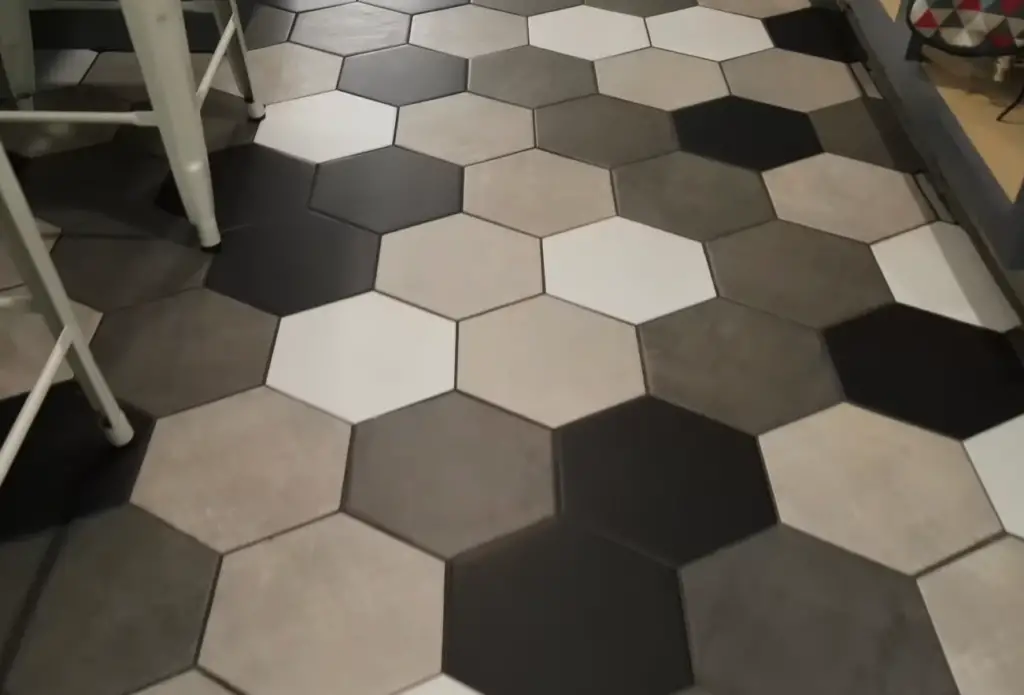
While tile is an excellent choice for kitchens, there are some drawbacks to consider before making a decision. Tile floors can be cold underfoot, which may be uncomfortable during colder months of the year. And because it’s slightly more difficult to install than hardwood, you may want to hire a professional contractor if you opt for tile installation in your kitchen.
Overall, tile makes an excellent choice in most kitchens, thanks to its durability and affordability. It’s also relatively easy to clean and maintain and comes in a variety of colors and styles to fit any home decor. [1]
Is hardwood really a good idea for a kitchen floor?
When considering hardwood as a flooring option for your kitchen, it’s important to remember that it’s not the most practical choice out there. While hardwood is beautiful and adds elegance to any home, it may not be the best option for an area that experiences so much moisture and wear and tear. This is because wood is prone to warping and discoloration when exposed to too much moisture, which can lead to unsightly stains and other damage in the long run.
If you decide to go with hardwood, invest in quality materials that are sealed properly against water damage. Additionally, you’ll want to look into regular maintenance such as refinishing or resealing every few years. [2]
Advantages of Hardwood Flooring
Hardwood flooring is an attractive and timeless option for kitchens. It comes in a wide variety of colors, styles, and finishes that can be customized to fit the look you’re going for. Hardwood floors are easy to clean, durable, and will last a long time if properly taken care of. They also add warmth to your kitchen, making it more inviting and cozy.
One of the biggest advantages of hardwood flooring is its resale value. Homes with hardwood flooring tend to be more desirable than those without, and potential buyers may pay more for a home with high-quality hardwood floors. This makes investing in hardwood a great choice if you plan on selling your home in the future.
Advantages of Tile Flooring
When it comes to tile vs. hardwood in the kitchen, there are several advantages that tile flooring offers:
- A tile is a great option for kitchens because it is waterproof and highly resistant to scratches, stains, and other damage;
- It can also stand up to heavy foot traffic without showing signs of wear or fading over time;
- Additionally, ceramic tiles come in a wide variety of colors and styles, so you’re sure to find something that suits your taste and complements the decor of your kitchen;
- Finally, tile flooring requires minimal maintenance; it’s easy to clean and won’t require frequent refinishing as hardwood floors do;
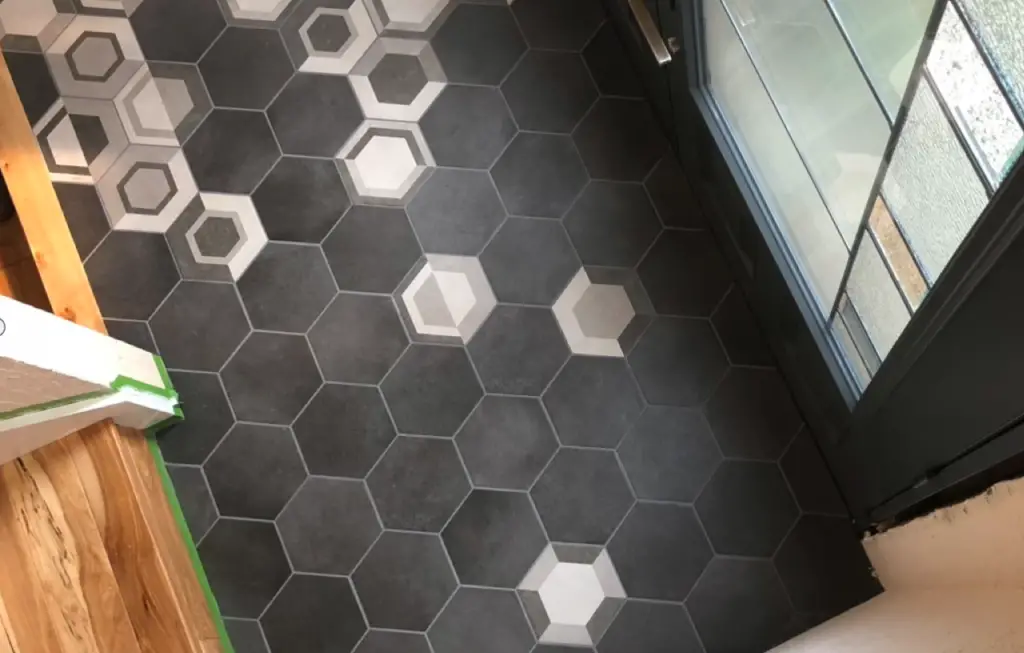
Downsides to Hardwood Flooring
Not only are hardwood floors costly to install and maintain, but they can also be prone to damage from water or moisture. If a kitchen is subject to frequent spills, then the flooring could be damaged beyond repair. Additionally, hardwood floors need regular refinishing which requires sanding down the surface of the floor to remove any scratches or imperfections. This can add extra labor costs and time-consuming work in order to keep the floor looking its best.
Another major downside of hardwood floors is that they require specific temperatures in order for them to remain stable – especially in kitchens where heat is constantly fluctuating due to the use of ovens and stovetops. Any changes in temperature can cause warping or crack over time; this can be a major issue for homeowners who may not have the financial means to repair or replace their flooring every few years.
Finally, hardwood floors can cause allergies and asthma problems in some individuals due to the microscopic particles that are found between the boards. These particles contain dust mites, mold, and other allergens that can aggravate those with sensitivities. This makes it important for those with such issues to consider alternative options when deciding what type of flooring is best for their kitchen.
Downsides to Tile Flooring
Tile is not without its downsides. One big disadvantage of tile flooring is the cost. It can be quite expensive, especially if you opt for higher-end stone tiles such as travertine or marble. In addition to being costly up front, installation costs for tile can also be pricey. Another potential con of having a tiled kitchen floor is that it can be hard and cold on the feet, which may not make it suitable for very young children or elderly people. Finally, ceramic tiles are more prone to cracking than other types of flooring, so they need to be maintained and replaced from time to time in order to keep them looking good.
Things to consider
When considering whether to use tile or hardwood in your kitchen, there are several things you need to take into account. Firstly, you need to think about the aesthetic look of each material. Tile comes in a variety of colors, styles, and sizes so you can create something unique that perfectly matches your kitchen décor. Hardwood is more limited in its design options but can add a warm, classic feel to any room.
You also need to consider practicality – which type of flooring is going to stand up best against everyday wear and tear? Tile is generally more durable than hardwood and better able to withstand spills, scratches, and dirt. It’s also much easier to clean as it has fewer crevices for dirt and grime to build up in. Hardwood is still a great option for kitchens, but it may not be as robust as tile when it comes to dealing with the messier side of cooking.
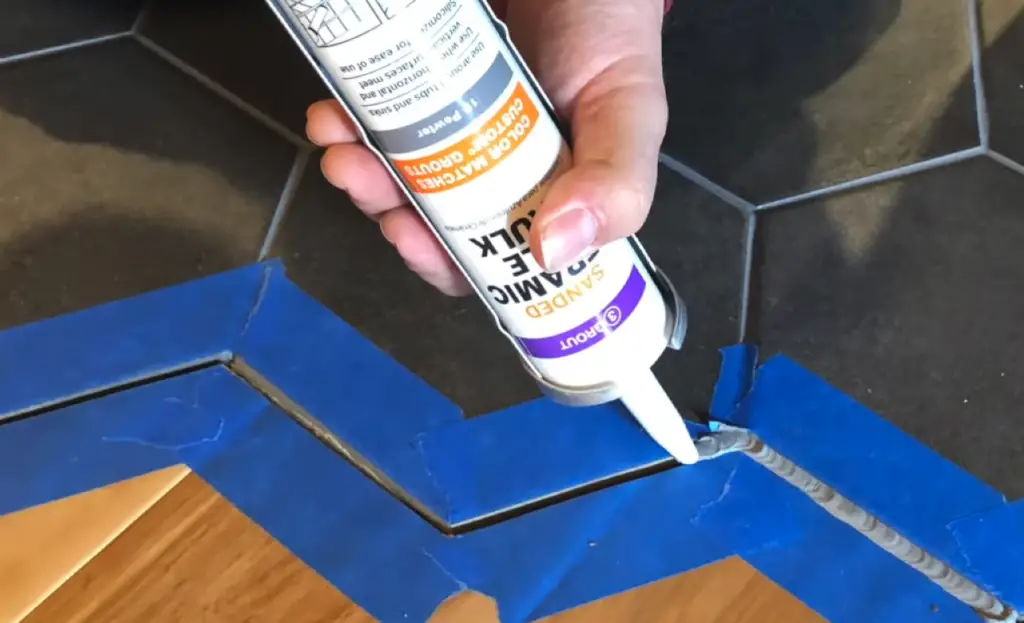
Finally, think about your budget. Tile tends to be cheaper than hardwood so if you’re on a tight budget, this could sway your decision. Don’t forget though that flooring is an investment and opting for something more expensive now might save you money in the long run if it lasts longer or looks better over time.
Surface hardness and water resistance
When it comes to surface hardness and water resistance, tile is generally the better option. Tile is a harder material than hardwood and therefore more resistant to scratches, dents, and spills. It’s also less susceptible to water damage so if you have a kitchen sink or other plumbing fixtures in your kitchen, this might be the best option for you. Hardwood does not fare as well when exposed to liquids and can swell over time if not cared for properly.
Maintenance
The maintenance required for tile and hardwood flooring is quite different. Tile is much easier to keep clean as it doesn’t have small crevices or grains that dirt can get caught up in. Simply mop the floor with a mild detergent and warm water and your tile will look good as new. Hardwood floors require more work, as you need to regularly sweep and vacuum them – otherwise, dust and dirt could wear away at the finish over time. You also need to apply a protective sealant every few years in order to protect the wood from water damage and other issues.
Repairs
Tile is much easier to repair than hardwood as all you need to do is replace the damaged tiles. Hardwood is more challenging, as you will often need to sand and refinish the whole floor in order to make it look uniform again. This is a time-consuming and expensive process, so bear this in mind when weighing up your options.
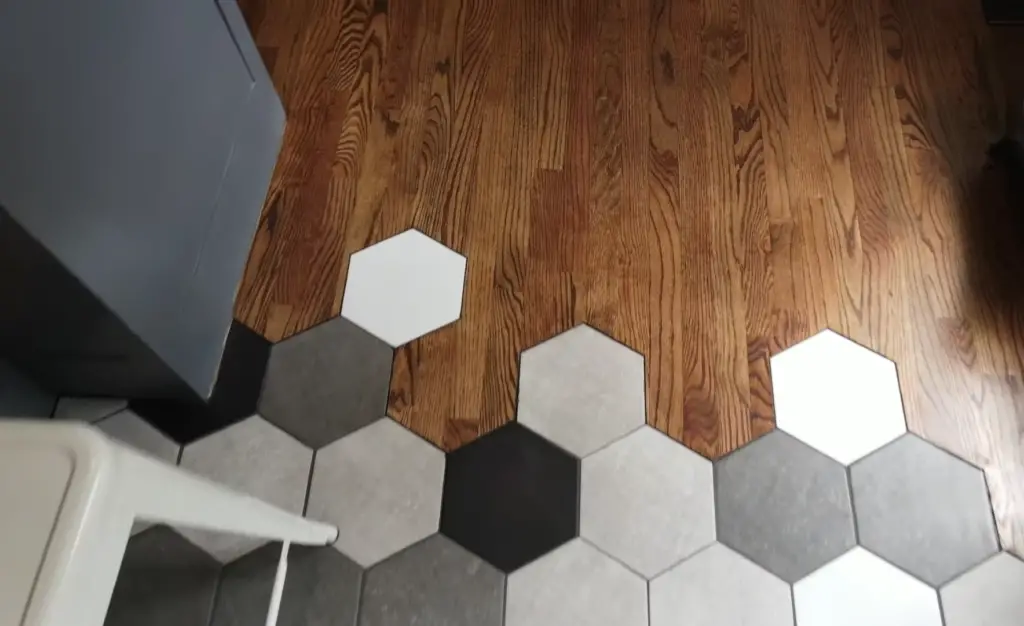
Overall, both tile and hardwood can be great options for kitchen flooring – it really comes down to personal preference, budget and lifestyle needs. Consider what each material has to offer and think about how it will fit into your home before making a decision.
Other things to consider
When choosing between tile and hardwood for your kitchen floor, there are a few other things you should keep in mind. Depending on the size of your kitchen, installing either type of flooring may require additional support or installation techniques to ensure stability.
Also, think about the acoustics – tiled floors tend to be noisier than hardwood as they don’t absorb sound in the same way that wood does. If this is an issue for you, then opting for a thicker or cushioned underlayment can help reduce noise levels.
Health benefits and concerns
One major benefit of choosing tile over hardwood is that it is generally easier to keep clean and free of allergens. This can be especially important for households with small children or those sensitive to dust and mold. On the other hand, hardwood floors may contain volatile organic compounds (VOCs) which can have a negative impact on your indoor air quality. Consider this when deciding between tile and hardwood in your kitchen.
Both tile and hardwood flooring are great options for kitchens – it just depends on personal preference, lifestyle needs, and budget. Think carefully about each material’s advantages and disadvantages before making a decision so you can choose the right option for your home.
Material price per square foot
Finally, it’s important to take into consideration the cost of each material.
It all comes down to researching what materials are available in your price range and choosing the best one for your needs.
Architectural design elements
Architectural elements, such as flooring, can be both beautiful and functional. When it comes to kitchen floors, two popular options are tile and hardwood. But which one is the best choice for your kitchen? We’ll review the pros and cons of each option so you can make an informed decision about what works best for your home and lifestyle.
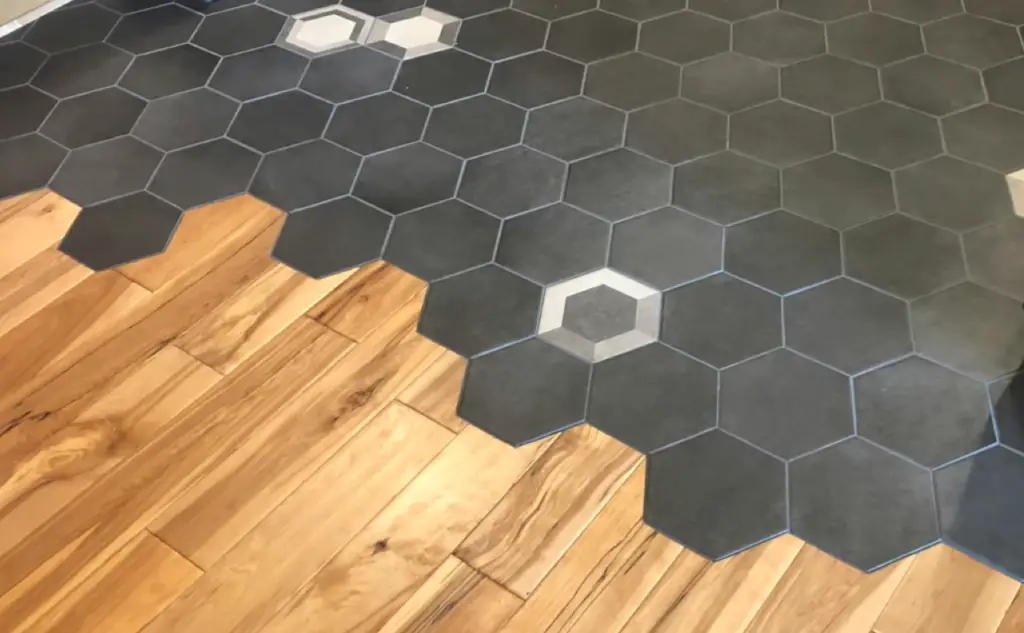
When choosing a type of kitchen flooring, consider durability, maintenance requirements, cost, style, and comfort.
Both tile flooring and hardwood have their advantages and drawbacks in each of these categories:
- Durability – Tile is known for its long-lasting durability — it’s water-resistant and easy to clean — making it ideal for busy kitchens where spills or splashes occur. The glazed finish on many tiles also makes them resistant to scratches. Hardwood is less water-resistant than tile, but with proper care and an additional sealant, it can last a lifetime;
- Maintenance – Tile requires more frequent cleaning than hardwood, as grout lines can trap dirt and bacteria. However, tile flooring doesn’t need regular waxing as hardwood floors do;
- Cost – The cost of tile will vary depending on the size, shape, and color of the individual pieces. In general, tile tends to be more affordable than hardwood because it requires fewer materials to install. On the other hand, hardwood floors have a higher up-front cost but could be cheaper in the long run since they are more durable and require less maintenance;
- Style – When it comes to style, tile offers a wide range of colors, textures, and sizes for you to choose from. Hardwood is also available in a variety of styles and finishes, but won’t be as customizable as tile;
- Comfort – Tile can be cold underfoot during the winter months if not heated properly — something that isn’t an issue with hardwood floors. However, tile provides some insulation against noise, which can be beneficial in busy family kitchens or homes with open floor plans;
FAQ
Is wood or tile better for the kitchen floor?
The answer to this question depends on a few factors, such as the amount of traffic your kitchen gets and your desired look. If you are looking for a classic and timeless look, then wood may be the better option as it adds warmth and beauty to any home. On the other hand, tile has many benefits that make it an attractive choice for a kitchen floor. Tile is known for its durability which makes it ideal for high-traffic areas like kitchens. It is also easy to clean and maintain over time.
Additionally, tile comes in a variety of styles and colors so you can easily find something that fits your tastes while still being functional in the kitchen. Ultimately, both options have their pros and cons; it just depends on what is most important to you and your home. [3]
Which flooring is best for a kitchen?
When it comes to choosing the best flooring for your kitchen, it can be tricky trying to decide between tile and hardwood. While both materials offer plenty of benefits, there are also some considerations that must be taken into account before settling on a final decision. Let’s take a look at each option and compare their advantages and disadvantages to help make the process easier.
Tile is one of the most durable and low-maintenance options available when it comes to flooring options in kitchens. It also provides an excellent water-resistant seal, making it ideal if you’re looking for something that will stand up well against spills or other potential messes that may occur in the kitchen. On top of this, tile is easy to clean – all you need is a mop or vacuum and some mild detergent to get the job done. However, tile can be quite cold underfoot and it doesn’t absorb sound as well as hardwood does, which may be an issue if you have an open-plan kitchen.
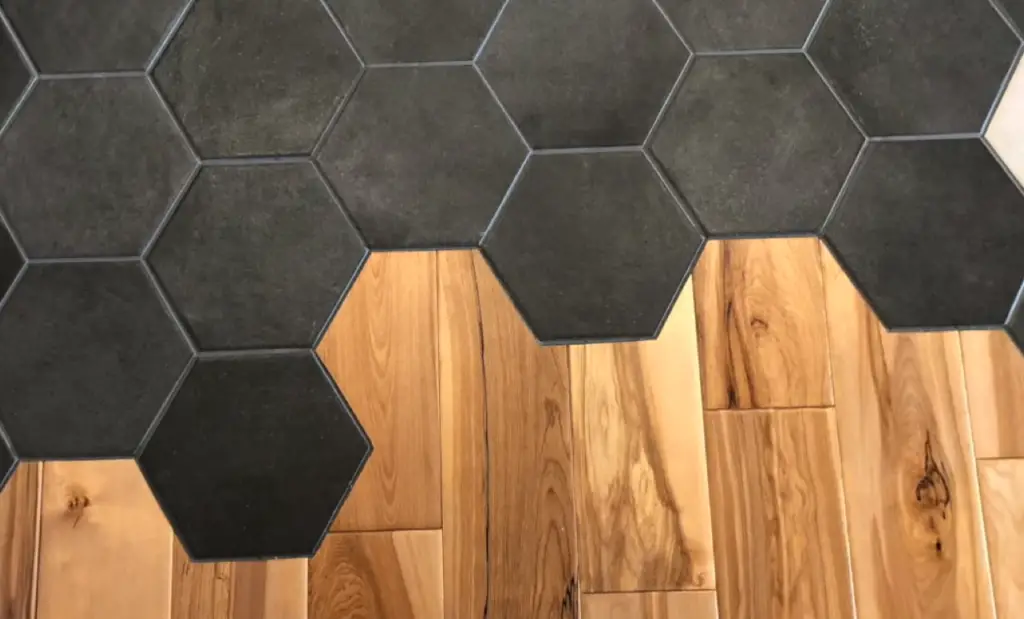
Hardwood flooring is another popular option for kitchens. It looks great and adds warmth and natural charm to any space. Not to mention, hardwood floors are easy to clean with just a broom or mop and they tend to last much longer than tile – making them a great investment in the long run. The downside of hardwood floors is that they require more maintenance than tile, including regular sanding, staining, and waxing every few years.
At the end of the day, it really comes down to personal preference. Consider your lifestyle and needs when making your decision – if you have kids or pets, then tile might be a better choice due to its durability and easy-clean properties. On the other hand, hardwood floors are synonymous with durability and ageless beauty. Weigh up both options and decide which one is best for you before committing to either one.
Is tile flooring better than hardwood?
It really depends on what you’re looking for in your kitchen flooring.
The tile is extremely durable and easy to clean which may be great if you have children or pets since all it takes is a mop and some cleaner to take care of any messes. Hardwood also looks elegant but can require more maintenance than tile as it’s susceptible to scratches and dents from heavy traffic and furniture moving. If you’re looking for something that will last longer without having to be replaced then tile might be the better option. If you want a classic look that won’t go out of style anytime soon, then hardwood could be the way to go.
Ultimately, it’s up to you! Both options offer unique benefits that make them great choices for any kitchen. [4]
Is tile best for the kitchen floor?
Tile is often the preferred choice for kitchen floors, depending on individual needs and preferences. It’s easy to clean, waterproof, durable, and comes in a variety of colors and textures. Plus, tile can add a touch of personality to your kitchen with unique designs like mosaics or intricate patterns. The downside is that tile can be chilly underfoot—but installing heated floors will help combat this issue.
Overall, tiles are great for busy kitchens — if you’re looking for a hard-wearing, waterproof floor with lots of style options, then this is the option for you.
Useful Video: What Flooring Is Best For Kitchen? Tampa General Contractor Answers Remodeling Questions
Conclusion
After considering the pros and cons of each material, the decision is ultimately up to you. There are several factors to consider when deciding which flooring option to go within your kitchen. Hardwood floors offer timeless beauty, while tile can provide a durable and easy-to-maintain surface. Consider how much foot traffic the area gets, your budget and whether or not either type of floor will complement other elements in the room. Whichever one you choose, make sure you do plenty of research on installation techniques so that your kitchen looks beautiful for years to come!
References:
- https://www.floridatile.com/why-choose-tile/
- https://www.mymove.com/home-inspiration/flooring/hardwood-floors-kitchens-bathrooms/
- https://theflooringgirl.com/blog/kitchen-floors-is-hardwood-flooring-or-tile-better/
- https://www.rhfloorandtile.com/post/tile-vs-hardwood-flooring





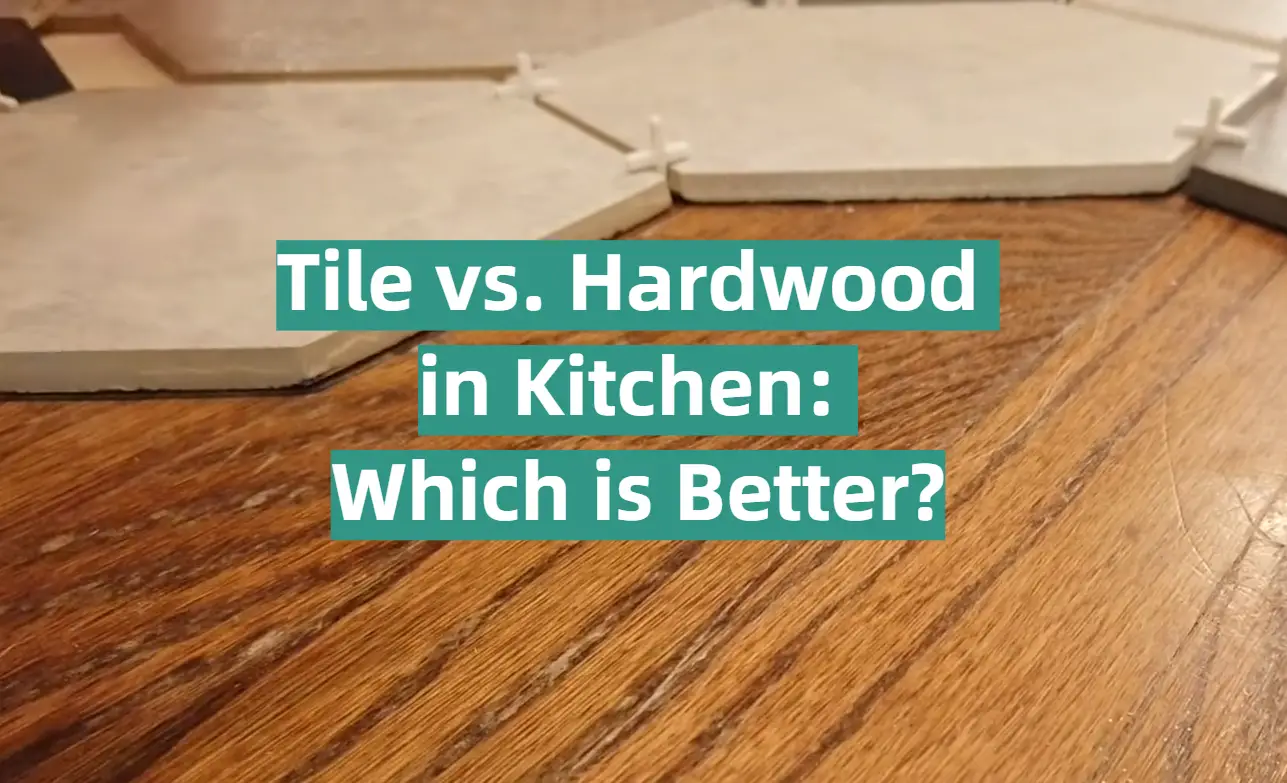
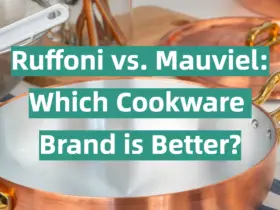
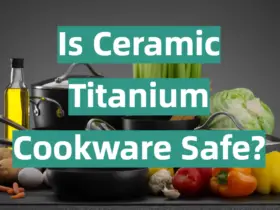



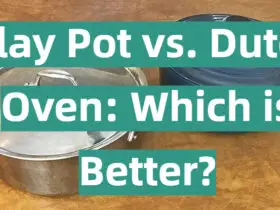

Leave a Reply